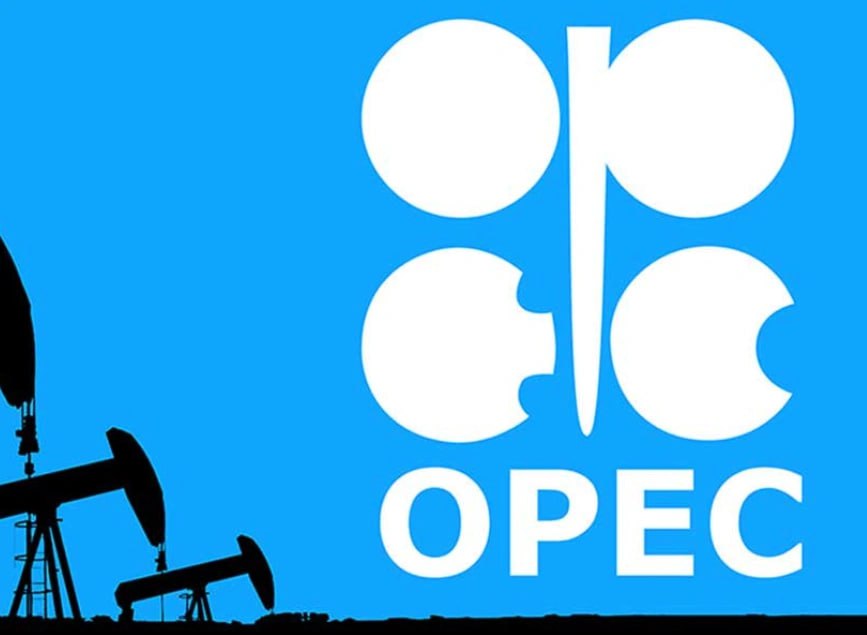
OPEC and Its Impact on Crude Oil Prices
Estimated reading time: 5 minutes
Table of contents
OPEC (Organization of the Petroleum Exporting Countries) has long been a significant player in shaping global energy markets. This organization comprises 13 major oil-exporting countries and holds substantial influence over crude oil prices. Established in 1960, OPEC has played a pivotal role in coordinating oil policies and fostering economic and technical cooperation among its members.
What is OPEC?
OPEC is a coalition of oil-producing nations united to regulate oil production and stabilize global energy markets. Headquartered in Vienna, OPEC’s Secretariat oversees its day-to-day activities. Beyond its economic and political roles, OPEC significantly influences energy trends worldwide and remains a cornerstone of the global oil market.
A Brief History of OPEC
OPEC was founded in September 1960 during the Baghdad Conference by five countries: Iran, Iraq, Kuwait, Saudi Arabia, and Venezuela. Over the following decades, other nations such as Qatar, Indonesia, Libya, the UAE, and Algeria joined the group.
In the 1970s, countries like Nigeria, Ecuador, Gabon, and Angola became members. In 2016, partnered with ten additional oil-exporting nations, including Russia and Kazakhstan, forming the OPEC+ alliance. This coalition further strengthened OPEC’s position amidst shifting global energy dynamics.
Read More: Forex Trading from A to Z: A Comprehensive Guide for Success
OPEC’s Influence on Oil Supply and Demand
| 🛠️ Factor | 🌐 Role & Impact |
|---|---|
| 🎯 Production Quotas | Sets oil output targets to control global supply and influence market balance. |
| 💰 Price Stabilization | Adjusts production to prevent wild price swings, aiming for stable and fair prices. |
| 📊 Market Share | Coordinates policies to maintain or expand OPEC’s influence in the global oil market. |
| 🔧 Spare Capacity | Keeps extra production on standby to respond to global supply emergencies. |
| ⛽ Supply Adjustment | Cuts in output reduce supply and raise prices; increases can cool down high prices. |
| 🌍 Non-OPEC Influence | Shapes strategies of rival producers like the U.S. and Russia through competitive shifts. |
| 📈 Demand Response | Increases or decreases production based on global consumption trends and forecasts. |
| 🕊️ Geopolitical Tool | Leverages oil policy to exert influence in international politics and economic talks. |
OPEC plays a critical role in determining global oil prices, producing around 40% of the world’s crude oil and controlling 60% of global oil trade. Key factors that contribute to it’s influence include:
Production Levels
OPEC’s decisions on production quotas directly impact the global supply of crude oil and, consequently, its prices.
Global Demand
Energy demand and global economic conditions guide OPEC’s strategies.
Geopolitical Events
Political unrest in oil-producing regions often disrupts supply chains, driving price volatility.
Competition from Non-OPEC Producers
Rising shale oil production in the United States and other countries has challenged Organization of the Petroleum Exporting Countries’ market control.
Read More: Santa Rally: A Key Seasonal Trend in Financial Markets

Global Oil Reserves
The state of global oil reserves influences market reactions to OPEC’s decisions.
OPEC vs. Major Non-OPEC Producers
Countries like the United States, Canada, and China, though not Organization of the Petroleum Exporting Countries members, significantly influence the oil market.
United States
The U.S. has become a leading oil producer, thanks to advancements in shale oil extraction. This has disrupted the traditional balance of supply and demand in the global oil market.
Canada
With its vast oil sands reserves, Canada is a major supplier of crude oil.
China
As the world’s largest oil consumer, China has increased its production but remains heavily reliant on imports.
These nations and other non-OPEC producers often compete with it, reshaping the global energy landscape.
Read More: What Is a Commodity? A Complete Guide to the Market
Best Times to Analyze and Trade Crude Oil
Crude oil trading is closely tied to OPEC’s decisions and global economic data. Key periods for analysis and trading include:
- Monthly Reports: These provide insights into production and demand trends.
- Meetings: Decisions on production quotas and policies can significantly influence prices.
- Economic Data Releases: U.S. economic indicators often shape global demand.
- Periods of Geopolitical Tensions: Political or economic crises can create price instability.
The Importance of OPEC in Global Markets
OPEC plays a vital role in stabilizing oil prices and balancing global supply and demand. The organization’s decisions influence production costs, transportation, and the pricing of energy-related products. Moreover, Organization of the Petroleum Exporting Countries helps shape global energy policies, responding to sudden market crises when necessary.

Criticisms and Challenges Facing OPEC
While OPEC has been instrumental in managing oil markets, it has faced criticisms for its ability to influence prices.
Criticisms
Organization of the Petroleum Exporting Countries has been accused of functioning as a cartel. For example, the 1970s oil embargo, targeting supporters of Israel, led to skyrocketing prices and energy crises in Western countries.
Read More: A Comprehensive Guide to Trading in the Forex Market
Emerging Challenges
- Shale Oil Production: The rise of shale oil has lessened OPEC’s dominance in the global market.
- Energy Transition: Increasing adoption of renewable energy sources poses long-term challenges.
- Legislation: U.S. initiatives like the NOPEC bill aim to curb OPEC’s market influence.
The Future of OPEC
Short-Term Outlook
Organization of the Petroleum Exporting Countries will continue to play a central role in regulating oil markets.
Long-Term Outlook
However, the organization’s influence may wane due to:
- Growing use of renewable energy.
- Expanding shale oil production.
- Global efforts to reduce reliance on fossil fuels.
Conclusion
OPEC remains a dominant force in global energy markets, shaping oil prices and production policies. While challenges like renewable energy adoption and shale oil production threaten its influence, OPEC’s ability to adapt will determine its long-term relevance.
For traders and investors, monitoring Organization of the Petroleum Exporting Countries’ decisions is crucial to developing effective strategies in the ever-evolving oil market. Despite emerging challenges, continues to be a key player in the global energy landscape.
Share
Hot topics

What Is Spot Trading?
Spot trading refers to the buying or selling of an asset for immediate delivery in the current market (or “spot”) and does not contain any future obligations, expiration dates, or...
Read more




Submit comment
Your email address will not be published. Required fields are marked *